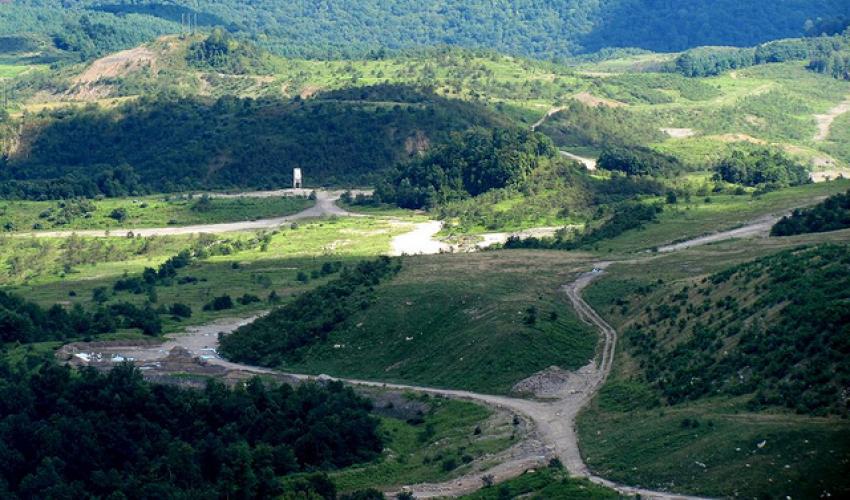Natural systems sustain life on earth. Yet…
Wildlife populations have halved since 1970. This stark fact was highlighted in research by WWF and the Zoological Society of London in their 2014 Living Planet Report. The IUCN Congress theme, Planet at the Crossroads, is timely as current efforts to halt or even slow the rate of species extinction are failing. The ecosystems that underpin our economies, well-being and survival are collapsing. The message is clear: we need urgent and collaborative action to tackle the unprecedented challenge facing society.
The consensus that we have to find a new, collaborative way to navigate our way to a genuinely sustainable future was distilled in New York last September, when the United Nations agreed the 17 Sustainable Development Goals (SDGs) which set a pathway to a greener, safer and sustainable future for us all.
In New York, businesses stood shoulder to shoulder with civil society and governments in their support for the SDGs. This moment highlighted one of the big changes that I have seen in the business world in recent years: how more and more companies have changed in their understanding and thinking about sustainability.
Compared to say 20 years ago, many more companies have a much broader understanding of sustainability and a genuine desire to be positive agents for sustainable development and want to be part of the solution.
Some may say that this change has been a long time coming, and they have a point. Indeed not all firms or industries are in the same place. While International Council on Mining and Metals (ICMM) members alongside Shell and JP Morgan agreed 13 years ago to make World Heritage sites no-go areas for mining, very few other companies or governments have followed suit and these precious places are still being exploited.
While 23 of the largest mining companies have voluntarily made this commitment, the conservation of World Heritage sites is a collective responsibility we all share. ICMM and IUCN commissioned an independent report by Dr Stephen Turner on world heritage. It recommended that countries incorporate their commitments under the World Heritage Convention in their national legislation and we would like to see more movement on this.
The amount of land and sea designated as formally protected has markedly increased over the past century and well managed protected areas have been proven to have beneficial conservation outcomes.
However, a review published in Nature in 2014, found that only 20–50% of protected areas are effectively managed. Under-resourcing and poor governance are the main reasons as well as corruption and conflict. Unfortunately, there are plenty of examples of protected areas not achieving their basic objectives.
We are sadly all too familiar with evidence that threatened species populations inside some protected areas are declining, including charismatic fauna such as gorillas, rhinos and elephants.
There are many reasons for these incursions and the evidence suggests that just declaring places protected areas does not provide the protection they deserve. It is more important than ever to unpick the drivers of the environmental pressures facing protected areas and address them.
I believe that the SDGs offer us a great framework for tackling the interdependent challenges we are facing. They help us understand the connections between the drivers of poverty, biodiversity loss and climate change. They give us a lens through which people working in different fields can see common goals, align, and collaborate.
Given that the urgency of change is clear to civil society, businesses and governments, the question arises: why is concrete action to protect the environment patchy at best and nowhere near what is required to meet the challenges of the next decade, let alone the next fifty years? How we catalyse the necessary change is probably the biggest question we are all facing.
We are in changing times and we are in a positive place to collectively drive forward a sustainability agenda. The signing of the SDGs last year showed the growing convergence of governments, businesses and civil society.
I sincerely believe that the SDGs provide the framework and the momentum for real change. So it is vital that we use this opportunity to work together, show leadership and tackle the big issues facing us all.
Tom Butler is the CEO of the International Council on Mining and Metals
Tom was a panellist at high-level dialogue: A changing climate – championing nature-based solutions, on 2 September. See the video of the event here: https://www.youtube.com/watch?v=sq7s0-vJJoU
ICMM is also convening a session on "Providing Cross-Sector Leadership for Conservation in Developing and Financing Oil, Gas and Mining: best practice development, collaboration, consultation," at the Business Pavilion from 11.00 – 12.00 on 3 September.
You can find out more about the International Council on Mining and Metals on their website at www.icmm.com











